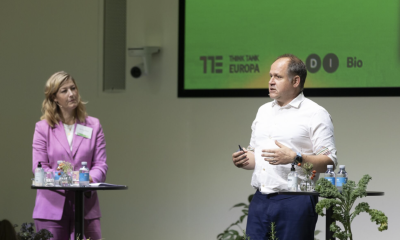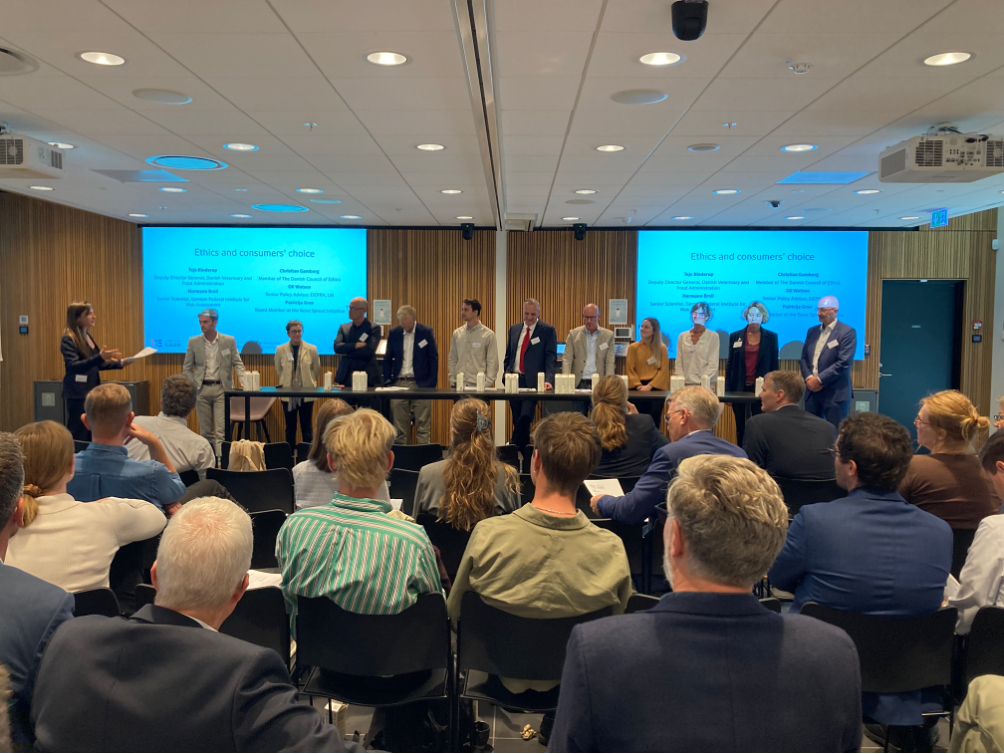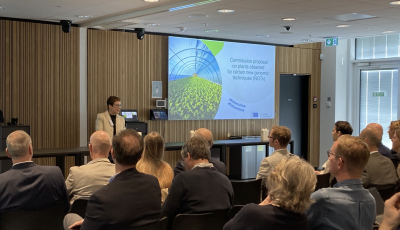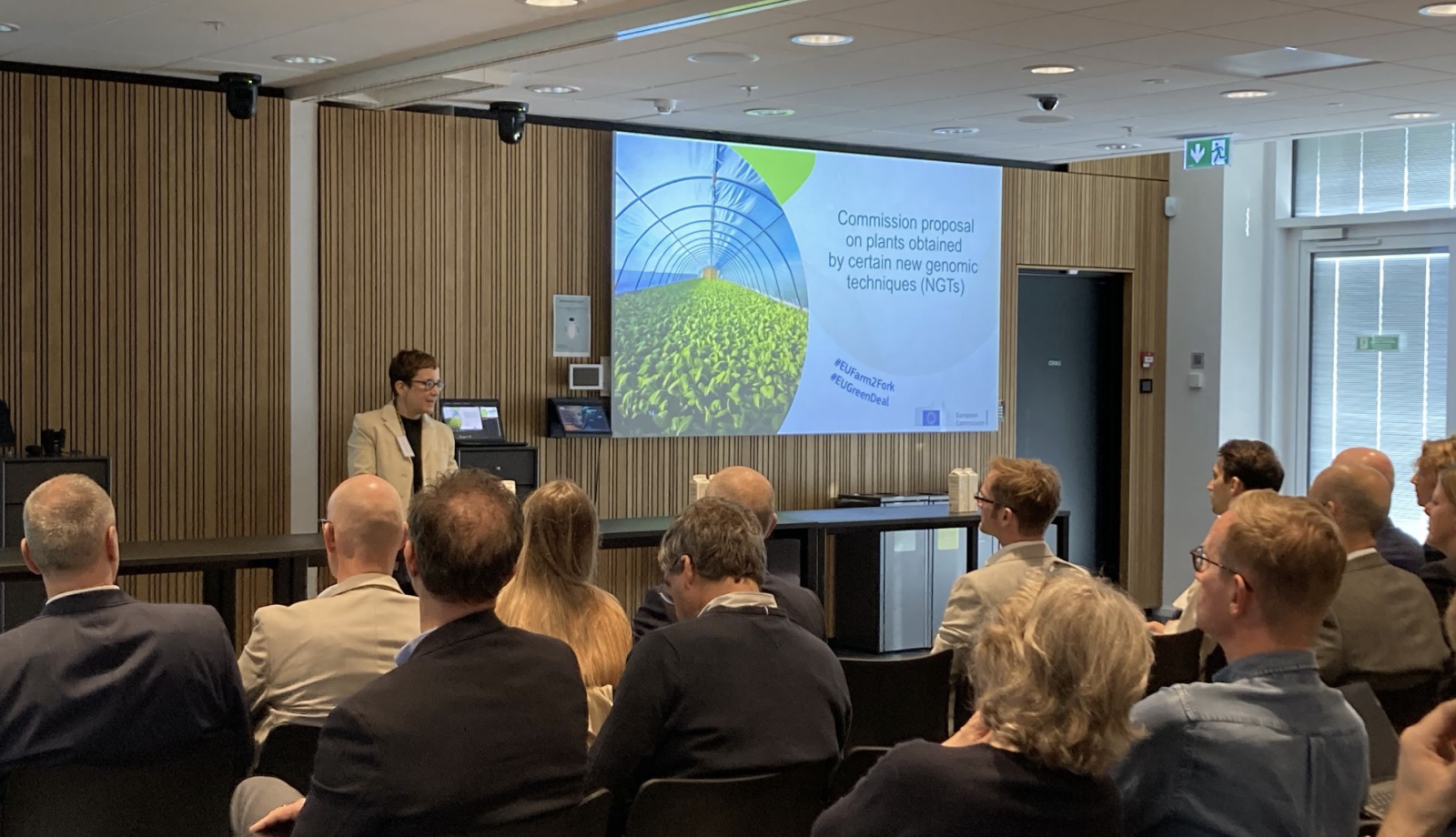Læs også

On September 14, 2023, Think Tank EUROPA and DI Bio hosted an international conference on food systems in an age of polycrisis. This note summarises the high-level insights from the conference.
On September 21, 2023, Think Tank EUROPA and Novozymes hosted a roundtable discussion on the Commission’s recent proposal on New Genomic Techniques (NGT). This note summarises the high-level insights.
Through contributions from a range of European and Danish speakers, the roundtable created a space for a productive exchange of views on issues ranging from ensuring a sustainable food production in times of crisis, to the ethical- and consumer concerns surrounding the technology.


The Biden-administration’s Inflation Reduction Act (IRA) has once again thrust the future of the EU’s competitiveness to the forefront of policy discussions in Brussels, including those centring on the Commission’s NGT proposal. Discussants highlighted the need for the EU’s regulatory framework to enable business to move with speed and at scale to deploy products produced by NGTs. Should the EU fail to do so, then it may miss out on the development of new technologies, including research and innovation in the field of genomics.
While some discussants were quick to emphasise the need for the EU to move fast to level the regulatory playing field for NGTs in relation to economic competitors like China, the USA, and the UK, others cautioned that overselling the potential benefits of the technology and moving too fast to implement it in Europe risked a public backlash as seen with the polarising debate over GMOs in the 1990s and early-2000s. This tension was highlighted as an important challenge for the Commission and European institutions in at this moment.
Similarly, some discussants highlighted the role of the Commission’s NTG proposal in the ongoing political negotiations over the future of the Farm-to-Fork strategy. According to this view, the NGT proposal is as an important ‘carrot’ for a sector that is likely to face higher costs of production in years to come from the implementation of Farm-to-Fork and the sector’s broader green transition.
Discussants emphasised that for NGTs to live up to their promise of supporting the green transition it is essential that regulators create the right enabling conditions for the technology.
A new regulatory framework for the technology has the potential to contribute to social sustainability by developing resilient agricultural production in less economically developed countries that have until now kept their production free from genetically modified plants, due to the so-called ‘Brussels-effect’. This is important as it is especially these regions that stand to benefit from the enhanced climate-resilience that can be obtained with NGTs. However, for this to be the case, it is essential for regulators to create the right incentives for the technology, especially with regards to biopatents.
Discussants debated the lessons learned from England, which recently went through a similar process of changing the regulatory framework for NGTs with their precision breeding bill. In the case of NGT applications in plants, the discussants estimated that the Commission’s current proposal creates a level playing field with England’s legislation, although this will depend, in part, on the implementation of England’s Precision Breeding Bill and the final outcome of inter-institutional negotiations over the Commission’s NGT proposal.
The question of co-existence with the organics sector has been an important line of critique and contestation in the ongoing debate over the Commission’s proposal. Participants also raised the question of whether the Commission’s proposal – in its current form – could mean that the organics sector will have difficulties in getting access to non-NGT seeds, a problem exacerbate by the undetectability of NGTs.


Both the need and challenges related to giving consumers a meaningful ability to opt-out from NGTs was raised repeatedly during discussion. Similarly, the challenges of meaningfully communicating risk to consumer in a transparent way was also underlined. Indeed, the very decision that the presence of NGTs is something that needs to be communicated to consumers in the first place, sends a signal about the risk of the technology that might not be scientifically merited. The challenge of communicating with consumers in such a politically polarising environment is likely to be an ongoing theme in with regard to this legislation.
WELCOME AND OPENING REMARKS with Thomas Stenfeldt Batchelor, Vice President for New Business Development and Long-Term Growth, Novozymes and Ditte Brasso Sørensen, Chief Analyst Think Tank EUROPA
KEYNOTE: UPDATE ON THE COMMISSION’S POLICY INITIATIVE with Irene Sacristan-Sanchez, Head of Unit, Biotechnolocy, DG Santé.
This event is part of Think Tank EUROPA’s 'Biosolutions 2030 – Towards a paradigm shift in European agricultural and food policy' project and is financed by Novo Nordisk Foundation (NNF22SA0080353).
The Think Tank EUROPA does not take collective positions. This publication only represent the views of their individual authors.